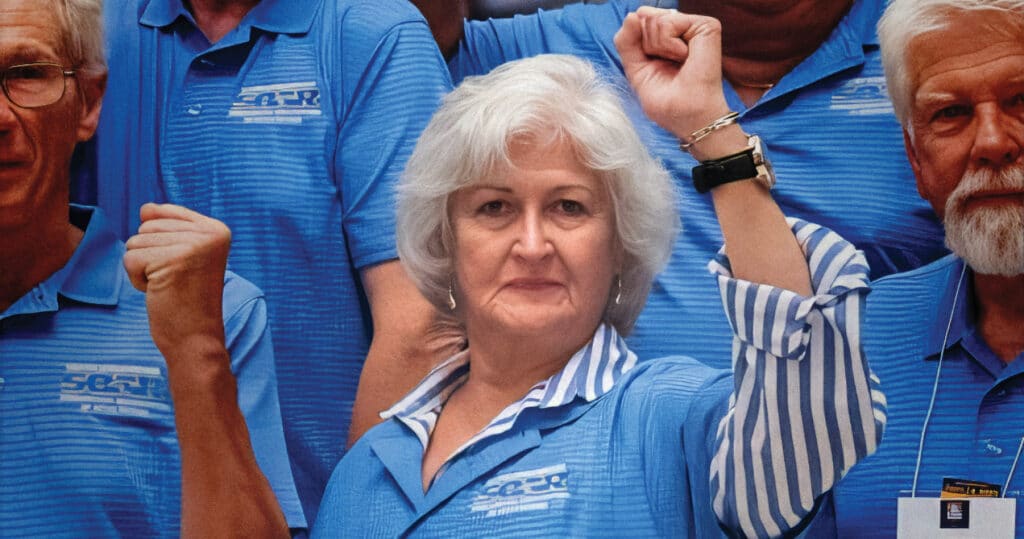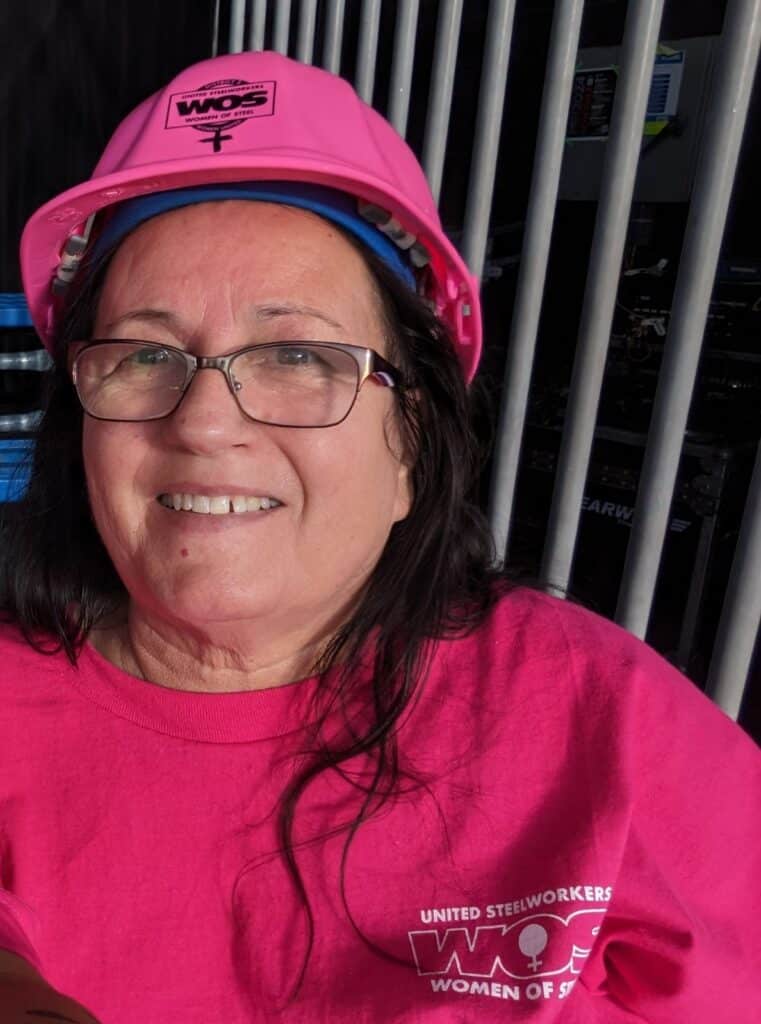We Keep America Rolling; Tennessee’s Bridgestone Workers Turn Out Some of the Best Tires in the World

David Eldridge reported for his first day of work at the Bridgestone tire factory in Morrison, Tenn., on July 5, 1994. Before he went home that day, he also became a member of Local 1155. “I signed on day one,” said Eldridge, whose father was a union sheet metal worker. “I remembered the benefits of the union from my early days.”
Eldridge is not alone. Despite living in a state where they could choose to shirk their responsibility to pay dues because of so-called “right-to-work” policies, more than 90 percent of the 800 hourly workers at the Bridgestone plant are dues-paying members of the local, and many of them are union activists.
Solidarity Works
One of those activists, Jamie Martinez, who serves on the local union’s Civil and Human Rights and Next Gen committees, got involved in the union early on, with the help of some grandfatherly advice. “My grandpa said, ‘Sign that card,’” noted Martinez, a six-year member who also drew inspiration from the international union’s inaugural Next Gen conference three years ago in Pittsburgh. “It wasn’t until I set foot in that conference that I understood the magnitude of what I was involved in,” Martinez said. “It takes hard work, dedication and solidarity. Solidarity more than anything else.”
That solidarity is clearly visible among the Local 1155L membership in rural Warren County, Tennessee, where members’ families, schools and businesses all depend on the good wages that the USW negotiates in its contracts with Bridgestone.
“We help keep local businesses afloat,” said Local 1155L President Drew Rodriguez. “It all trickles down to every business that we support.” In addition, those wages and benefits allow workers to raise families and enjoy a quality of life that wouldn’t be possible without the union. “All the things I wanted out of life,” Rodriguez said, “I never could have done without the union.”
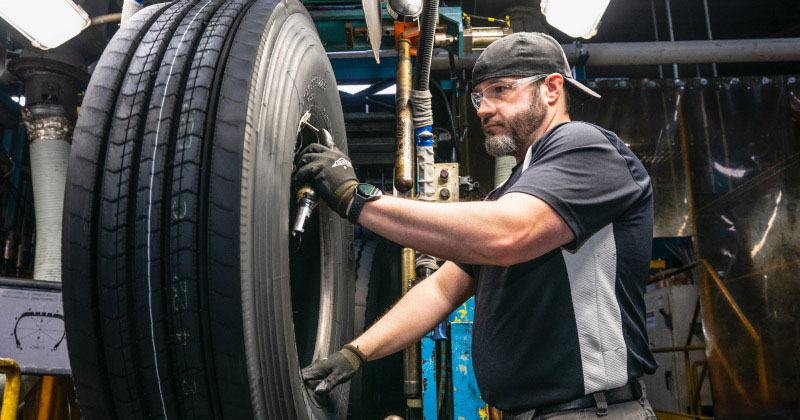
Pride in Their Work
The pride that members feel in being USW members is also evident in their approach to the day-to-day work of producing tires that bear the iconic Bridgestone label.
“Every employee takes pride in the tires that come out of our facility,” Rodriguez said. “We know it’s an excellent product because we take our time to make sure we get it right.”
The workers in Morrison produce more than 9,000 large truck and bus tires each day, making the factory No. 1 in productivity among Bridgestone’s 24 plants. The workers at the facility also lead the company in cost-efficiency.
One reason for the factory’s longterm success is the collaborative relationship the plant’s managers enjoy with the union work force. That stems in part from the fact that each member of the Morrison management team started out working on the shop floor, said plant manager Tim Painter. “That’s what makes our culture different,” Painter said. “This plant has a lot to be proud of.”
Among those points of pride is the work force’s dedication to health, safety and environmental stewardship. Those principles are at the core of what the USW stands for, and local leaders in Morrison share that dedication.
Local 1155L (the “L” was added following the United Rubber Workers’ merger into the USW in 1995) has an active and engaged safety committee whose members work closely with Bridgestone managers to identify and eliminate hazards. “It’s the foundation of working,” Heath Young said of his efforts as part of the USW safety committee. “The union itself, I believe, is born out of safety.”
The Warren County factory has been recognized by the Occupational Safety and Health Administration as a Voluntary Protection Program STAR site for its work to keep employees safe, and the building was the first tire plant in the world to receive a Leadership in Energy and Environmental Design (LEED) Silver Certification for sustainability and environmental responsibility.
“This plant is always at the forefront,” Painter said. The 906-acre site includes the 2-million-square-foot Bridgestone facility as well as a 680-acre wildlife preserve, both of which regularly host visits from schoolchildren in the area.
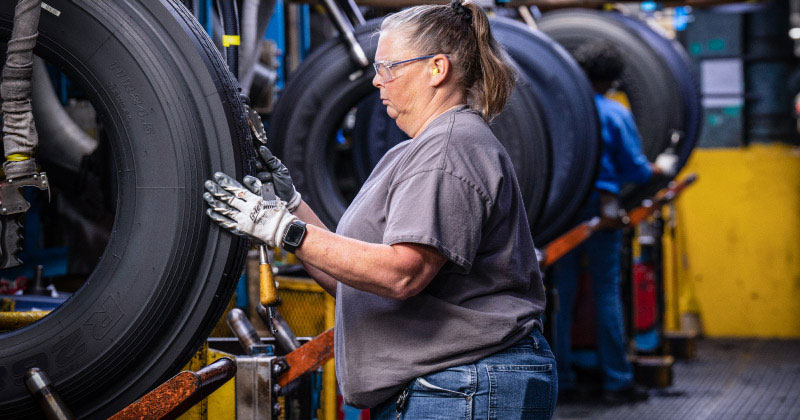
High-Tech Work
Inside the factory, Bridgestone employs a mix of time-honored, hands-on techniques and state-of-the-art technology to produce some of the most advanced products on the market. Each step of the way, USW members are there to make sure the job is done right.
Banbury mixers oversee the beginning of the process, where rubber, pigments and other raw materials are blended to create the primary building blocks for Bridgestone tires.
Members in the extrusion department then feed that material into mills to create various shapes and thicknesses.
Builders assemble pieces of rubber, along with steel, nylon, wire and other components, on machines before the products move on to the curing process, where each individual piece is molded, under intense heat and pressure, to create a finished tire.
A New Generation
The work of building quality tires – and of being an effective union activist – takes time and dedication, and local union leaders, including Financial Secretary Van Tenpenny, recognize the importance of mentoring the next generation to ensure that the USW’s tradition of activism continues.
About 35 percent of the work force in Morrison has less than six years of experience, and the company expects more than 150 workers to retire in the next five years. “It’s our job to educate those coming behind us,” said Tenpenny, a Tennessee native who came to work at the factory not long after it opened in 1990.
In addition to handling the union’s finances for the past 22 years, Tenpenny oversees the local’s award-winning member-to-member communications program, in which he informs Bridgestone workers about the many benefits the USW delivers for them. “We have a collective voice that puts us on the same playing field with the company,” he said. “We’re all in this thing together.”
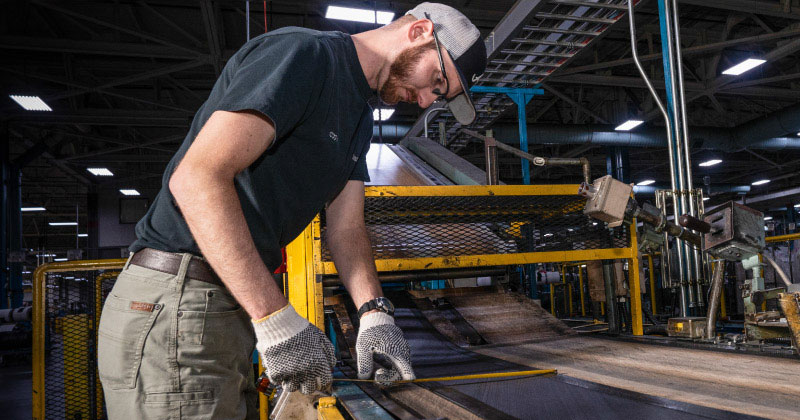
Upcoming Bargaining
That sense of togetherness will be particularly important for the workers as they approach the expiration of their contract this summer.
In addition to the members in Morrison, the USW represents Bridgestone workers in nearby La Vergne, Tenn., as well as in Akron, Ohio; Des Moines, Iowa; Russellville, Ark., and Bloomington, Ill. Their contract runs through July 29.
Rodriguez, who is in his first year as Local 1155L president, said he has been working hard over the past several months to build relationships with leaders at other tire locals as the contract expiration nears in the hope that, working together, they can achieve a fair agreement.
The Union Difference
First-time union members Jamie Craven, a three-year member, and DeeJay Roland, who has worked at the factory for seven years, recognized the difference their union contract made very soon after starting their jobs at the Bridgestone plant.
Roland, a Local 1155L executive board member who also serves on the union’s Next Gen committee, said he has worked at non-union jobs in the past and that the upcoming contract should build on the strong wages, benefits and safe working conditions the USW has established over the past 32 years in its negotiations with Bridgestone. “Safety is the key for everyone,” he said. “This plant – and this union – it’s our responsibility to keep them going.”
Fight for Fair Trade
One way the USW fights to keep the U.S. tire industry going, Roland and other members say, is through the union’s relentless fight for fair trade and Made in America rules.
Local 1155L Recording Secretary Carlos Amado said that the USW’s campaign to ensure robust domestic supply chains for essential goods is part of the reason he has been proud to call himself a USW member for 27 years. “If we learned anything from this pandemic,” Amado said, “we should have learned that.”
Trucks with Bridgestone-made tires kept U.S. businesses and households supplied with much-needed goods throughout the COVID-19 crisis. “We keep America rolling,” Rodriguez said. USW members should be proud of their role in keeping vital supply chains stocked, and they should be compensated fairly for it, Amado said. “Without the trucking industry, we couldn’t honor that demand,” he said. “We know our product is the best in the world, and that’s just a good feeling.”
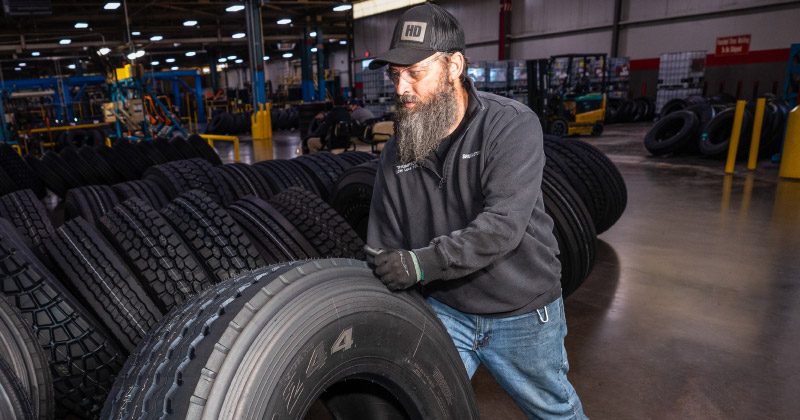
Essential Workers
Members like Amado are certain that they produce top-of-the-line tires, because they are involved in every step of the production process.
The tires that come out of the Morrison factory get heavy day-to-day use, in some cases for more than one million miles, so quality control is essential. Prior to shipping them to customers, Bridgestone puts its products through a rigorous testing and inspection process.
Workers, like 19-year USW member Annette Veals, visually and manually check each individual tire to ensure that there are no abnormalities before they are sent out the factory door. “It’s important,” said USW policy committee member Tommy Winkles. “We want people to know that we build some of the best tires in the world.”
Industry Challenges
Winkles knows something about that – he’s been involved in making tires for 44 years. Before coming to Bridgestone 32 years ago, he worked at the Goodyear factory in Gadsden, Ala., about 150 miles south of Morrison. That plant, once the largest tire factory in the world, closed in 2020 after 90 years in operation, when the company moved production to Mexico.
That loss was particularly devastating for then-Local 12L President Mickey Ray Williams, who fought for years to preserve quality union jobs at Goodyear and who now serves the members of Local 1155L and others in the region as a USW staff representative.
“When we compete fairly, American tire makers are the best in the world,” Williams said. “Unfortunately, the playing field we’re on when it comes to trade isn’t always fair.” The Gadsden closure is a reminder of why the USW plays such an important role in manufacturing towns like Morrison, why the union continues to organize tire plants throughout the South, and why union members have fought so hard for decades for worker-friendly trade practices and strong “Made in America” policies.
“Bringing more tire workers into the union, like those at Bridgestone in Tennessee, Kumho in Georgia, Giti in South Carolina, and elsewhere, will only make the U.S. industry stronger,” said Daniel Flippo, director of District 9, which includes Tennessee as well as Alabama, Florida, Georgia, Mississippi, North Carolina, South Carolina and the U.S. Virgin Islands. “All USW members who produce the tires we drive on know the union difference, and all workers deserve to feel that same pride shown at Local 1155L.”
Strict domestic procurement rules, which the Biden administration pushed for as part of its $1.2 trillion Infrastructure Investment and Jobs Act passed last year, will help ensure that the good jobs that USW members have at Bridgestone and other tire makers can continue for the next generation and beyond.
“We have fought for years for our jobs here,” Tenpenny said. “And we will continue to fight, because of our union.”
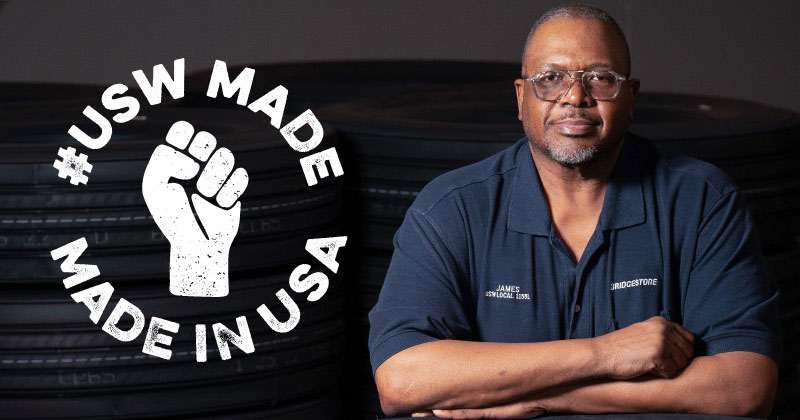
By clicking Sign Up you're confirming that you agree with our Terms and Conditions.
Recent News Articles
Want to Learn More?
See how the USW is making a real difference in our communities and our workplaces.
